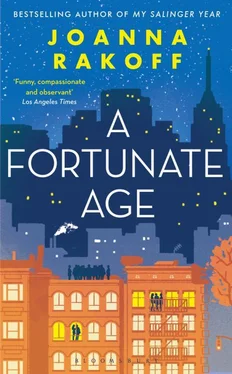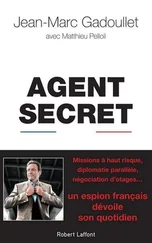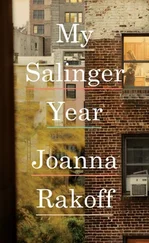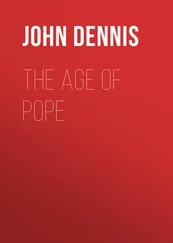“They don’t actually use that term anymore—”
“Oh my God , Mom. You’re kidding.” Her mother sighed, which only served to infuriate Emily, as if she’d known that Emily would be prickly and uncompromising and judgmental, when that was not at all what was going on . “Didn’t that go out with, like, lobotomies and padded cells?”
“Okay, enough , Emily.” Her mother’s voice had gone sharp. “That’s enough, okay . Yes, you’re right, they didn’t use it for ages, but now it’s making a comeback. Apparently, it’s useful in treating certain types of cases—like Clara’s—in which the disease is preventing the patient from making progress. They were desperate, Emily. We were desperate.”
“But it’s the same thing,” Emily pressed. “Electroshock therapy. They’re just calling it something else.”
Again, her mother sighed. “Yes, Emily, that’s what it is. But it’s different than it was in the sixties, Em. It’s very high tech.”
“Mmm-hmmm.” She pictured the apparatus described in The Bell Jar : electrodes, wires, a leather pad that disallows a person from biting off her own tongue.
“We’re losing sight of the point here,” her mother said. “The point is that it worked, right? She seems good to you, right?”
“Yes,” Emily admitted. “Like a different person.”
This new Clara began venturing out into the neighborhood, making daily rounds of the neighborhood’s junk shops: Ugly Luggage, the Salvation Army on Bedford, the unnamed place on Driggs operated by a moody Hasid, the dingy furniture outfits over on Wythe with higher prices but better stuff, and various church shops on the south side that Emily had never noticed but Clara quickly discovered. She brought home an endless stream of treasures: mismatched Fiesta ware in the muted, sallow palette of the 1960s; a crystal chandelier, which she deftly installed in their entryway, previously lit by a bare bulb protruding from a chipped, grime-streaked socket; two overstuffed chairs; a new desk for Emily; a green enamel teakettle; vases of different shapes and colors and sizes (“You know how you never have the right size when someone brings you flowers?”); eight balloon wineglasses in Czech crystal; and new clothing for herself, none of it exactly right—a pair of stretch-velvet leggings, those awful rayon dresses, imprinted all over with tiny flowers, that everyone had worn in the early 1990s—but all of it better than her previous uniform. So clad and coiffed, she installed herself, afternoons, at the L, where she drank coffee and smoked Marlboro Light 100s (which she considered more elegant than their shorter brethren) with the regulars, among them the proprietors of not one but two radical book publishers (one socialist, the other anarchist), a tattooed couple who ran a local circus, a yoga teacher, a massage therapist, and a gay performance artist who sang show tunes in a bunny suit.
Now, in the evenings, Emily found an assortment of these local characters sitting on her couch or her glossy new floor, engaged in heated discussions of matters political (“Bush knew about the attacks; he and bin Laden are in cahoots”) or religious (“Buddhist meditation actually alters the chemistry of your brain ”) or personal (“Clara, you just need to tell your mother to butt out of your life”), while smoking cigarettes, the ashes from which they deposited in Clara’s new collection of vintage ashtrays, culled from her daily junk rounds. “Hey, Red,” the socialist publisher called, annoyingly, the first time Emily walked in and discovered him sitting on her couch, eating a tofurkey sandwich from the health food store on the corner. “I’ve seen you around for years. How come we never became friends?” Because you’re creepy , Emily thought. But slowly, he grew on her, as did the others. The yoga teacher gave her a pass for a free class and clasped Emily’s hand warmly when she took her leave. The Ugly Luggage woman brought Emily a pair of kelly green cowboy boots—picked up on a buying trip in Dayton (“the vintage clothing capital of the country”)—which Emily adored. And the manager of the Salvation Army baked them muffins, studded with mysterious fruits, lopsided but delicious.
But the second publisher—the anarchist publisher—was the most frequent and friendly guest, inviting Emily to book parties and asking her gross, too-intimate questions (“What do you think is the most erogenous part of the male body?”). Soon, he’d made Clara an “intern” at his publishing house, which operated out of a giant loft down on South Eleventh Street. In exchange for lunch and cartons of cigarettes, she stuffed envelopes and sorted mail and read through the manuscripts and letters that poured into the office lately. “There’s so much stuff I didn’t know about the government. Like, do you remember in the eighties, all that stuff in Nicaragua, with the Sandinistas? Did you know that the CIA was really training the rebels?” Emily did indeed know. She’d gone to Oberlin, after all. But she said nothing. “I was so gullible before. It’s like I’ve opened my eyes and I see all this corruption around me. I guess I was so focused on my own problems that I couldn’t see what was going on in the world.”
Clara, it seemed, had become an anarchist. Emily knew she should be alarmed, or at least annoyed by the irony of it—boyfriend leaves her for an anarchist; sister comes to take his place, then becomes an anarchist, too—but, in truth, she found it both amusing and heartening, another sign that Clara, as she herself acknowledged, was awakening to the world. Each evening, her sister presented Emily with some new revelation and Emily nodded dutifully, trying not to argue or to correct her misconceptions, for, she thought, Clara would parse it all out in time, as Emily had herself, years and years ago, in her teens. Contemporary anarchists were not, Emily discovered, as she’d previously thought, a united, organized body, like Democrats or the Green Party. There were many different factions, though these factions didn’t think of themselves as holistic factions, per se, because anarchism is, by definition, against organization. The publisher, and, thus, Clara, believed in a rather different set of tenets than did Amy, it turned out.
“She’s one of those ecowarrior types,” Clara scoffed, when Emily mentioned that she had a “friend” who was also an anarchist and described some of the “friend’s” activities and beliefs and affiliations. She hadn’t told Clara anything about Curtis—she knew Clara to be incapable of keeping anything from their parents—but she couldn’t resist getting Clara’s take on Amy. “I mean, I bet she’s doing good stuff, but people like that are focused on the micro —keeping Citibank from destroying the rainforest or saving the whatever rare bird. You know what I mean?”
“Hmmm.” This dismissal somehow comforted Emily. “And what are you—your group—what are you focused on?”
“Well, we’re not a group, you know. We’re a network of like-minded individuals with a common goal.”
“Right.”
“But, anyway, we’re focused on the macro. Total revolution.”
Emily laughed. “What? You mean you want to overthrow the government.”
“Yeah, sort of,” said Clara, with a pained look that made Emily feel like a cretin. She could see that Emily wasn’t taking her seriously (though, okay, how could she?). But this, too, was a sign of her recovery, wasn’t it? She was somehow sharper, more aware of the minutiae of other’s reactions and emotions. And, Emily thought, maybe she was giving her sister the short shrift. She had become so cynical, so conservative. At sixteen, would she have responded to all this anarchy stuff with excitement? Maybe. “I mean, it’s like, permanent, systemic change. Clearly, democracy isn’t working. I mean, not that this is a democracy. Bush is essentially a dictator.”
Читать дальше












